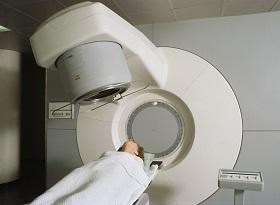Using AI to control energy for indoor agriculture
30 September 2024
Published online 15 October 2013

The number of people suffering from cancer in Algeria has increased by 50% in the past five years, the latest figures reveal. A survey by the country's health ministry found there were 44,000 new cases annually, making it one of the leading causes of death in the country.
Unless cancer prevention is prioritised, this number will probably rise exponentially over the next three years, according to Kamel Bouzid, head of the oncology unit at the Mustapha Pacha Hospital in Algiers. He said there was a lack of accurate data about cancer sufferers which made strategies to fight it difficult.
Besides long-term plans, he suggested Algeria needs to improve immediate response treatment to decrease the number of deaths, as well as improving the wellbeing of people living with the disease. "Only 30% of the cases that are found are in the early stages of the disease, the rest only see a physician after it is too late to operate and all we can do is control the pain."
Hamida Kateb, the head of Shoa'a Al-Amal Society, a support service for cancer patients, blames the current "cancer crisis" on the lack of oncologists in public hospitals, many of whom, she says, are leaving the country or opening private clinics. Kateb also points to an acute lack of radiotherapy equipment." Patients often have to "wait more than year for treatment, but the cancer does not wait. Many people die waiting for their turn for radiotherapy."
Kateb says there are only six centres for cancer therapy across the country whose care burden is 28,000 patients a year. Technology and equipment at the centres is also old and unreliable. The government had announced plans for 22 new radiotherapy treatment centres with top-of-the-line equipment by June 2013, but these are yet to be built.
Bouzid says the rapid increase of the disease over the past 10 years – which he expects to reach 300 new cases annually for every 100,000 people in Algeria — is partly because of a change in the national diet. "The diet of Algerians has changed rapidly, with a rise in fast foods and the use of artificial colours and additives, in addition to an increase in pollution that affects crops and fishing." The lack of any cancer research centres in Algeria means causes have not been thoroughly examined or studied.
doi:10.1038/nmiddleeast.2013.145
Stay connected: